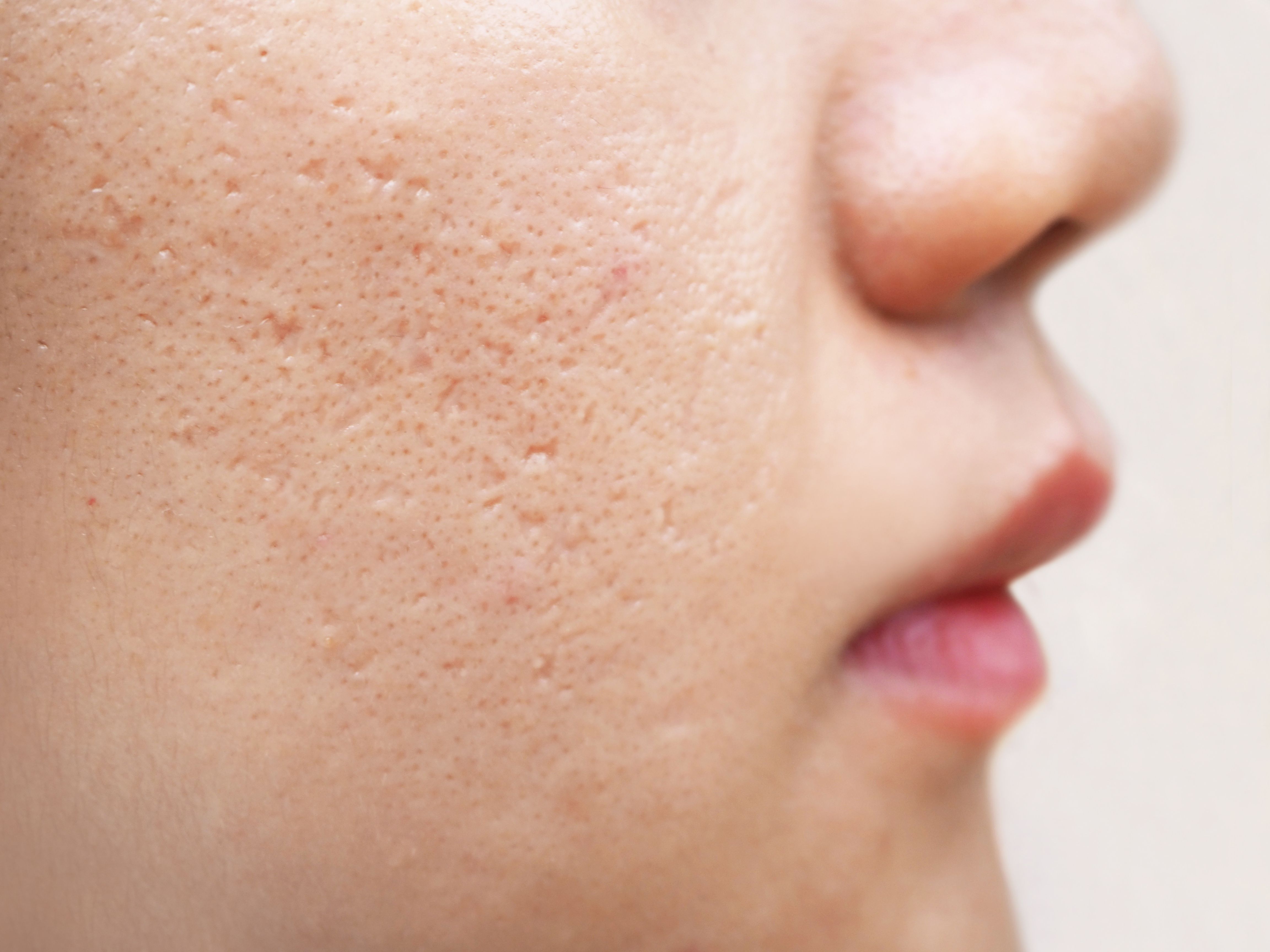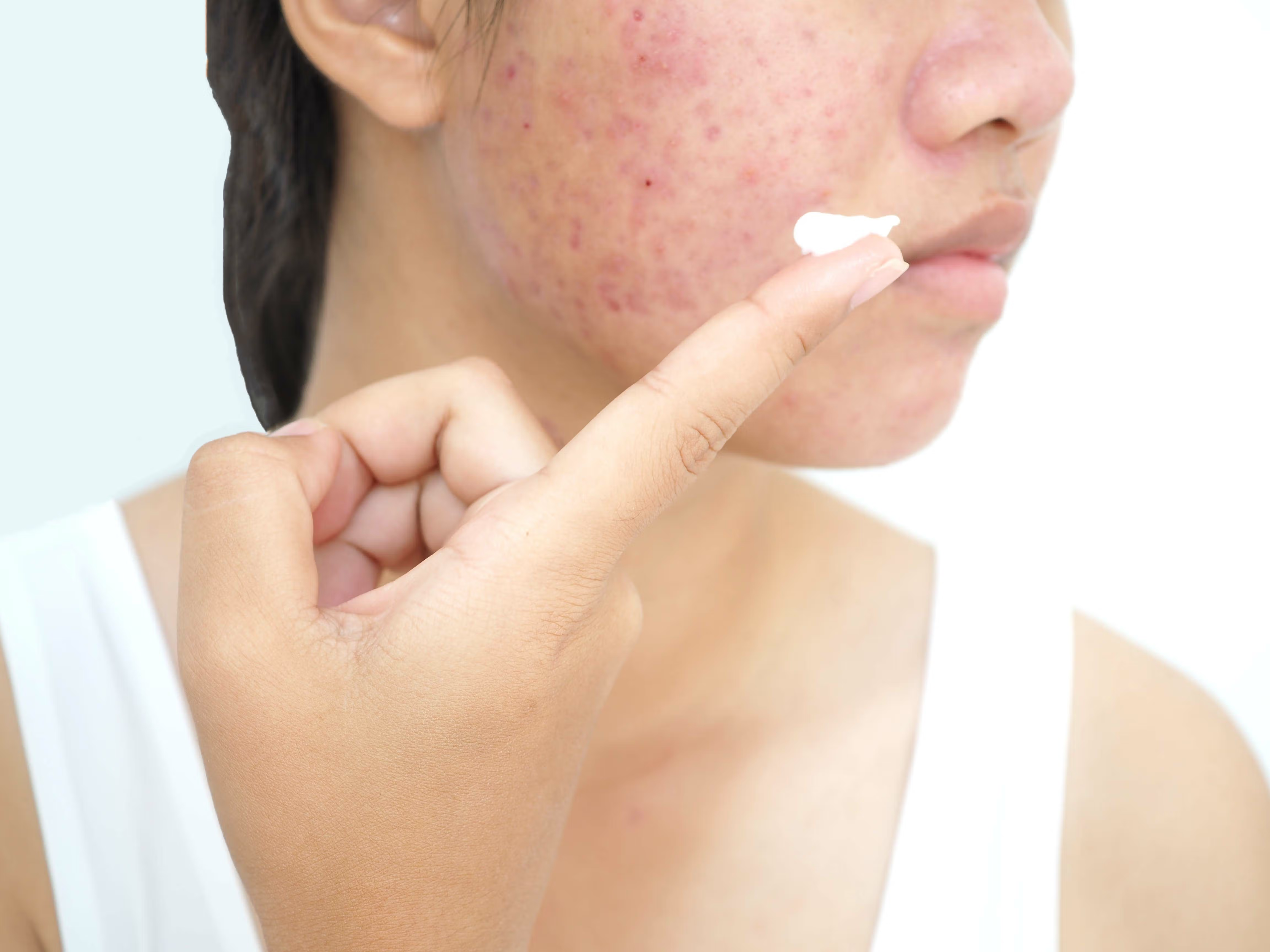- Acne
- Actinic Keratosis
- Aesthetics
- Alopecia
- Atopic Dermatitis
- Buy-and-Bill
- COVID-19
- Case-Based Roundtable
- Chronic Hand Eczema
- Drug Watch
- Eczema
- General Dermatology
- Hidradenitis Suppurativa
- Melasma
- NP and PA
- Pediatric Dermatology
- Pigmentary Disorders
- Practice Management
- Precision Medicine and Biologics
- Prurigo Nodularis
- Psoriasis
- Psoriatic Arthritis
- Rare Disease
- Rosacea
- Skin Cancer
- Vitiligo
- Wound Care
News
Article
Insights Into Clear Health’s Low-Dose Microdose Accutane Protocol For Mild Acne
Author(s):
Aaron Farberg, MD, discusses the low-dose, affordable Accutane treatment and Clear Health’s mission to improve patient access to affordable acne therapies.
Clear Health recently announced the launch of its Microdose Accutane Protocol, a low-dose, affordable Accutane (isotretinoin) regimen for individuals with milder acne.1
According to a study published in the Official Publication of The College of Family Physicians of Canada, low doses of isotretinoin have led to similar levels of acne improvement as conventional doses. This is coupled with its capability of reducing common side effects by anywhere from 16% to 35%.2
Aaron Farberg, MD, is Dermatology Times’ spring editor in chief and a double board-certified dermatologist, fellowship-trained Mohs surgeon practicing in Dallas, Texas, and the medical director of Clear Health, a digital platform offering patients specialist evaluations, treatment management, and more, directly from the comfort of their own home.
Farberg recently spoke with Dermatology Times to discuss the protocol, its significance in dermatologic therapy, and the importance of prioritizing mental health and patient well-being in every treatment plan.
Microdose Accutane: An Overview
"Microdose Accutane, or alternative dosing Accutane, is a well-known secret of dermatologists,” Farberg said. “We've utilized this off-label regimen for Hollywood celebrities, models, and even ourselves, in some cases.”
Rather than taking Accutane on a daily basis for an average of 6 to 7 months, a patient will take a dose every third day for a longer period of time. Clear Health providers recommend 40 mg dosing every 3 days. With this regimen, clinicians are able to prescribe an entire box amount via digital offering, when insurance often does not cover it.
This modified dosing regimen enables providers to minimize many of the common side effects of Accutane, including dryness, sun sensitivity, rash, and more.3
Aaron Farberg, MD

Low-Dose Versus Conventional Dosing and Treatment
Traditionally, the standard dosing for Accutane is based off of a patient’s weight, and side effects can be difficult during the period of 6 months of treatment. Although characterizing mild, moderate, and severe acne is often subjective in nature, standard Accutane dosing is generally considered in cases of moderate to severe acne, often excluding individuals with more milder forms of acne.
“We always have to remember that how a patient's acne impacts them is extremely important and must be considered when deciding on the right treatment course,” Farberg said. “A microdose treatment essentially spaces out that 6 month treatment over a much longer period of time, whereby you maintain the improved effects on the skin while minimizing the side effects.”
Emphasizing Well-Being and Mental Health as a Priority
“Not even including Accutane, just treating an acne patient should involve a discussion about the patient's mental health,” Farberg said. “During a patient's evaluation, they are regularly evaluated with a standardized depression scale and are provided with resources, should the dermatologist feel there is a concern.What's more exciting is that in the future, we plan to integrate all of these services so we can really help the whole patient in a most efficient and convenient manner.”
Conclusions
Dosing regimens for Clear Health are all prescribed by board-certified dermatologists.
“We take acne and its treatment very seriously, and we want our patients to see the best and be treated by the best,”Farberg said. “It's important to know that we've all been utilizing these various dosing regimens to treat acne and a variety of other skin diseases. With Clear Health, we hope to improve access to these life-changing and life-improving treatments, including microdose Accutane, in the most safe manner possible. We provide comprehensive care to ensure that our patients are well taken care of.”
References
- Clear Health announces Microdose Accutane Protocol. News release. Clear Health. April 29, 2024. Accessed May 3, 2024.
- Brar G, Grewal P, Korownyk C. Is less more with isotretinoin and acne?. Can Fam Physician. 2016;62(5):409. Accessed May 3, 2024.
- Isotretinoin: The truth about side effects. American Academy of Dermatology. Accessed May 3, 2024. https://www.aad.org/public/diseases/acne/derm-treat/isotretinoin/side-effects
Newsletter
Like what you’re reading? Subscribe to Dermatology Times for weekly updates on therapies, innovations, and real-world practice tips.












